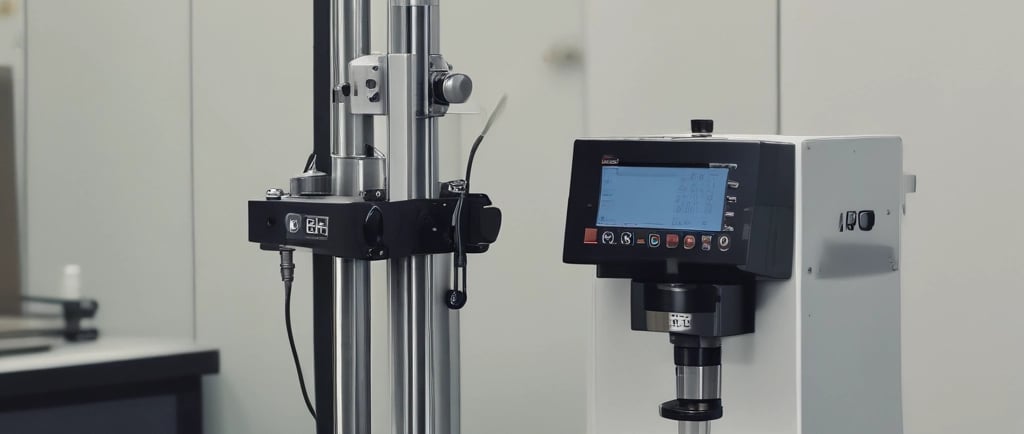Revolutionizing On-Site Metal Testing with the UCI Hardness Tester
In the world of industrial manufacturing and quality control, precision is everything. Whether you're inspecting aerospace components, automotive parts, or forged metal structures, knowing the hardness of a material can make or break performance.
Admin
10/19/20252 min read


In the world of industrial manufacturing and quality control, precision is everything. Whether you're inspecting aerospace components, automotive parts, or forged metal structures, knowing the hardness of a material can make or break performance. Traditionally, hardness testing has been confined to labs, requiring bulky equipment and surface preparation. But with the rise of portable technology, the UCI Hardness Tester is changing the game.
What Makes the UCI Hardness Tester Unique?
UCI stands for Ultrasonic Contact Impedance. This method uses a vibrating probe to measure how resistant a material is to deformation. The device calculates hardness based on changes in ultrasonic frequency when the probe touches the surface. It’s fast, accurate, and most importantly — non-destructive.
Unlike conventional testers, the UCI Hardness Tester doesn’t leave visible marks or require polished surfaces. That means you can test finished parts, coated surfaces, and even hard-to-reach areas without compromising integrity.
Designed for Real-World Conditions
One of the biggest advantages of the UCI Hardness Tester is its portability. It’s compact enough to carry to job sites, production floors, or maintenance areas. Technicians can get instant readings without sending samples to a lab, saving time and reducing downtime.
The device is also versatile. It works on a wide range of metals including steel, aluminum, titanium, and alloys. Whether you're checking weld zones, gear teeth, or heat-treated components, the UCI tester delivers reliable results.
Key Benefits at a Glance
Non-destructive testing
Minimal surface preparation
Instant digital readings
Ideal for complex shapes and coatings
Lightweight and portable
Suitable for various metals and alloys
Industries That Rely on UCI Testing
Aerospace: turbine blades, landing gear, structural parts
Automotive: crankshafts, suspension components, welds
Metallurgy: heat-treated samples, surface coatings
Manufacturing: machined parts, assemblies
Energy: pipes, valves, turbine housings
Why Multitek’s UCI Hardness Tester Stands Out
Multitek Technologies offers a NABL-calibrated UCI Hardness Tester tailored for Indian industries. With a user-friendly interface, robust build, and reliable accuracy, it’s trusted by professionals across sectors. Plus, Multitek provides local support and calibration services, ensuring long-term performance and compliance.
Conclusion
The UCI Hardness Tester is more than a tool — it’s a solution for modern industrial challenges. It empowers engineers and technicians to make quick, informed decisions without compromising quality. As industries continue to demand speed, precision, and flexibility, the UCI method is becoming the go-to choice for hardness testing.
Explore Multitek’s UCI Hardness Tester and see how it can elevate your quality control process.
Contact
Get in touch with our experts.
INDIA Development Center
201-208, 2nd Floor, Shri Krishna Complex, Opp. Gate No. 2,
Mahesh Apartments, Vasundhara Enclave,
Main Road, New Delhi–110096
Website: www.multitek.in | www.microvicker.com | www.mcpl.ai | www.scaletape.com | www.makemyspm.com | www.ucihardness.com
Tel: 011-41009005 | Mob: +91-7836009222, 7836009922
Email : service@multitek.in
© 2025. All rights reserved.
